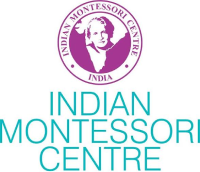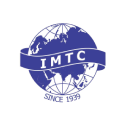Work doesn’t deter a five-year-old and neither does the workroom! The spring in their feet, the haste in their pace, the happy giggles, and the smile so warm with eyes waiting eagerly for the surprise to unravel, such is the excitement when they walk into the Workroom. This special feature in Sishu Griha was introduced by Mrs. Sujatha Kumar in order to make the transition from the pre-primary to the elementary setup a smooth one.

Typically in a pre-primary environment, the children are engrossed in individual activities, and content to focus on their work. As they grow older and become interested in what others are doing they are ready to learn about collaboration.
The Workroom serves well as a bridge program. Children from different environments come to the workroom twice a week for two hours at a time. Here they work in groups, mingling with friends from other environments.
A gradual process helps children to attune to the new environment harmoniously. Through different media such as experiments, stories, board work, and exploratory walks, they enjoy learning about their world and even their universe. Mindful of their interests and their capacity to focus, the workroom schedule also introduces them to working at desks and following instructions given to the group.
“Workroom day is my favourite day!” is an often heard refrain… encouraging us to redouble our efforts to serve the child better.
Montessori At Home!
By Aishwarya Dwarakanath
Activity 1: Listening to Audiobook:

Working from home? There’s still a way to increase your child’s vocabulary as you work! Find a lovely audiobook, and let your child draw or paint as they listen to it. Leave them with some ground rules about interacting with you while this happens. (saying excuse me, using a waiting hand, waiting for your office call to finish). Remember to offer cuddles and conversation when you’re done!
Activity 2:Tracing textures:

The sensitivity to touch (tactile sense) is a crucial skill for writing and there’s a very small window from 2.5 to 3.5 years. However, make things interesting for all ages with this texture-based activity. Help your child choose safe surfaces- the bark of a tree, the granite steps, a wooden cabinet, a jute bag, or a perforated bowl. Place a piece of paper on top of the surface and gently shade over with a pencil.
Glossary of Montessori Terms
By Shakina
Concrete to Abstract:
In a Montessori environment, the child is introduced to a concrete material that incorporates an abstract idea such as colour, shape, size, and even higher mathematical concepts. With enough repetition and working with material, the child’s brain grasps the concept or the logic ingrained in the concrete material and progresses towards abstraction at various stages. As the child grows they are able to comprehend the idea in its symbolic form. The progression from concrete to abstract is both logical and developmentally appropriate.
House of Children:
Casa dei Bambini in Italian translates to ‘children’s house’ in English and it is their place where children work, live, and be a part of the environment from 3-6 years. This safe and secure environment encompasses all the necessary materials that aid optimal human development.
What's New on the Blog

“Unrecognised Miracles”
Dr. Montessori would remark, “the first two years of life are the most important. Observation proves that small children are endowed with special psychic powers and points to new ways of drawing them out – literally ‘educating by cooperating with nature’. So here begins a new path, wherein there will not be the professor who will teach the child, but the child who will teach the professor”.
From a very protective environment in the womb that is pleasantly warm, of comfortable touch, temperature controlled and noise controlled, the infant arrives amidst us into a place full of bright lights, sounds, fluctuating temperatures and uncomfortable/harsh touch. Read More of Mrs. Meenakshi Sivaramakrishnan’s article on this month’s blog post here!
Library corner!
By Nivedita
Book 1: Your Body is Yours

Book 2: Some Street Games of India

In this gem of a publication brought out by NBT, Mulk Raj Anand describes in detail the games that he played on the streets around his childhood home. Beautifully illustrated by Badri Narayan in a colourful and picturesque manner, this book invites children out to play the games described here and to spend time outdoors having fun with friends and neighbours. These immortal games such as kabbadi, spinning tops, hopscotch and flying kites, are part of our culture. Our grandparents played them, we played them and hopefully our grandchildren will play them too!
Art for the Heart!
By Subhashini
Art for the Heart!

- Threads – preferably woolen – Cut into strips of 20 cm length – 10
- Paints – acrylic or poster colors
- A4 sheets
- A palette or a small plastic tray to work with paints
- Water – if needed
- Gather all the materials that are mentioned.
- Choose any color that the child would like to work with. Pour it into the tray,
- Dilute with very little water, if needed.
- Take the A4 sheet and fold it in half. Take a strip of thread and dip it in the paint solution.
- Ensure you coat the entire thread with paint.
- Open the folded A4 paper. Carefully and slowly drop the thread inside the paper, forming any pattern.
- Make sure to leave the end of the thread out of the paper.
- Close the fold and press gently with your hands.
- Gently and slowly start pulling the thread out by pulling the tail end of the thread.
- After pulling out the thread completely, open the paper to see a pattern formed on both sides of the paper. Repeat with various colors to form interesting patterns.
Journey of a House of Children
Vidiyal Montessori Kalvi
–Shruthi Karthik
The Steps involved in the process are:
i) Selection of schools
ii) Permission from the officials
iii) Training
iv) Montessori environment preparation
Journey so far:
Vidiyal Montessori Kalvi tries to spread the need for Montessori education. Through Vidiyal Montessori Kalvi, a total of 20 teachers are already trained in Montessori education and 35 teachers are getting trained currently. Nearly 500 kids are getting free Montessori education with the help of Vidiyal Montessori Kalvi in 4 government schools. Our next step is to set up Montessori education in 20 Chennai Corporation schools.
Last Month’s News Update!
- On October 1st, Anantha Padmanabha, Vice President,International Relations, IMC conducted a two-hour online session for the Vietnamese on the topic of ‘Do we need to correct? If yes, how, when, and why?’ The session was attended by over seventy people. An interesting interaction session followed by Q&A session was effective. Several principles of Montessori came up naturally during the interactions.
- The Inauguration of the 49th Montessori Primary Course of Indian Montessori Training Courses, Chennai and Erode took place on Friday 30 September 2022. It is planned as a blended course with 450 hours online and 120 hours in person practice classes. Ms. Uma Shanker, Mentor/Advisor to IMC welcomed the gathering and said that she was happy to announce that this was the 25th year of IMTC Chennai, started as Centre for Montessori Training Chennai in 1998.
Ms. Kriti Chatterjee, Director, Indian Montessori Training Courses and Chief Guest for the event gave an inspiring talk on how the training course transforms us so deeply to become child-centered in our approach and that the IMC course is unique because it rests with each individual to bring about the changes within themselves.
Ms. Shobhana Vaidyanathan, Director, IMTC, Chennai, Mr. G Shanker, Trustee, Kalvi Trust for Research and Education, and Ms. D Janaki Raja, Associate Director, IMTC Erode offered their felicitations.
Calendar for Oct 15th- Nov 15th
- Indian Montessori Training Courses – Elementary announces its next batch of Elementary Teacher Training Course in Bangalore.
The course is a blend of online and onsite training being held in Basavangudi, South Bangalore from November 2022 to December 2023.
Diploma in Montessori Elementary Education is awarded on successful completion of the course.
For further details contact
+91 9972123099; +91 9902251956
elementary@indianmontessoricentre.org
- the different training centers- (Bengaluru, Chennai, Gurgaon, Vietnam),
- HOCs (House of Children),
- IMC Members (click to be a member)
- and IMTC Alumni!
If you are a Montessori guide, school, trainer, or parent, you can also contribute to this newsletter and communicate your ideas to others!
Just write to us via email: newsletter@
To learn more about the Indian Montessori Centre, visit our website. www.indianmontessoricentre.org
Follow us on Facebook and Instagram.





